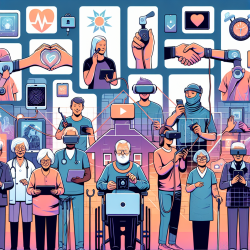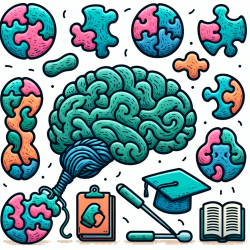Introduction
Bullying victimization is a pervasive issue that significantly impacts the quality of life (QoL) of adolescents, particularly those with Attention-Deficit/Hyperactivity Disorder (ADHD). A recent study from Taiwan highlights the intricate relationship between bullying, emotional problems, and QoL among adolescents with ADHD. This blog explores how practitioners can leverage these findings to enhance therapeutic outcomes for this vulnerable group.
The Study: Key Findings
The research, conducted by Lin et al., utilized structural equation modeling to analyze data from 171 adolescents diagnosed with ADHD. The study found that bullying victimization indirectly affects QoL through emotional problems such as depression and anxiety. Interestingly, ADHD and Oppositional Defiant Disorder (ODD) symptoms did not mediate this relationship.
These findings underscore the importance of addressing emotional problems in adolescents with ADHD who experience bullying. By focusing on emotional well-being, practitioners can potentially mitigate the negative impact of bullying on QoL.
Implications for Practitioners
For practitioners working with adolescents with ADHD, this study offers several actionable insights:
- Early Detection and Intervention: Regular screening for bullying victimization and emotional problems should be integrated into therapy sessions. Early intervention can prevent the escalation of emotional issues and improve overall QoL.
- Customized Bullying Prevention Programs: While general bullying prevention programs exist, they should be tailored to meet the unique needs of adolescents with ADHD. This includes addressing factors that increase vulnerability to bullying.
- Focus on Emotional Health: Emotional problems serve as a critical mediator between bullying and QoL. Therefore, therapeutic interventions should prioritize emotional regulation and resilience-building strategies.
Encouraging Further Research
While this study provides valuable insights, it also opens avenues for further research. Future studies could explore:
- The long-term impact of bullying on QoL in adolescents with ADHD across different cultural contexts.
- The effectiveness of specific interventions in reducing emotional problems and improving QoL.
- The role of other potential mediators, such as family dynamics and peer support, in the relationship between bullying and QoL.
Conclusion
Practitioners have a pivotal role in improving the lives of adolescents with ADHD who experience bullying. By focusing on emotional health and customizing interventions, we can foster resilience and enhance their quality of life. As we continue to build on existing research, let us remain committed to data-driven practices that yield positive outcomes for children.
To read the original research paper, please follow this link: Relationship between Bullying Victimization and Quality of Life in Adolescents with Attention-Deficit/Hyperactivity Disorder (ADHD) in Taiwan: Mediation of the Effects of Emotional Problems and ADHD and Oppositional Defiant Symptoms.










